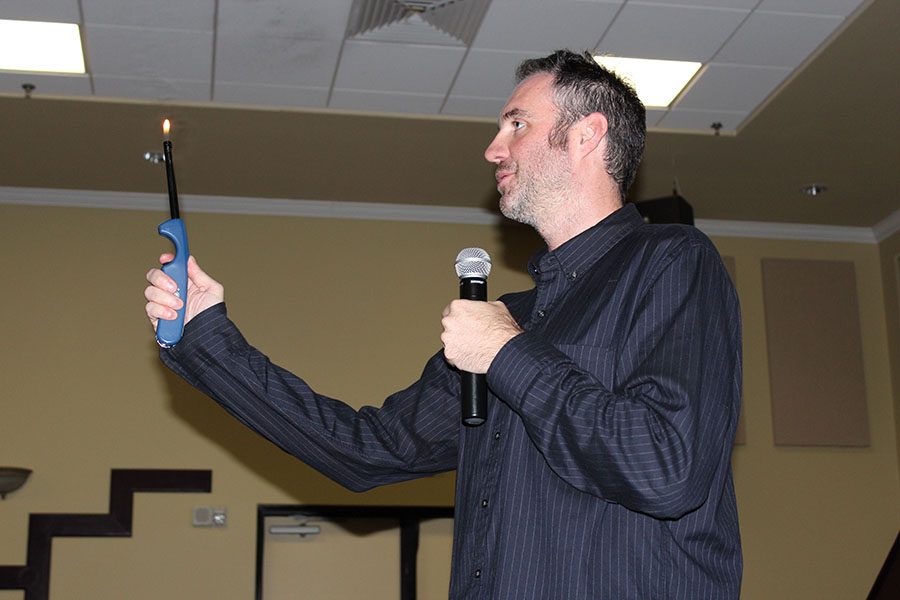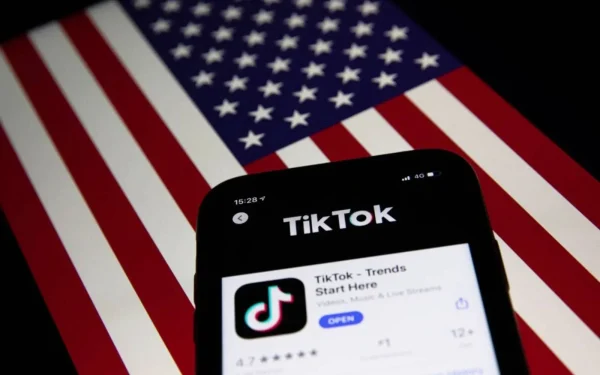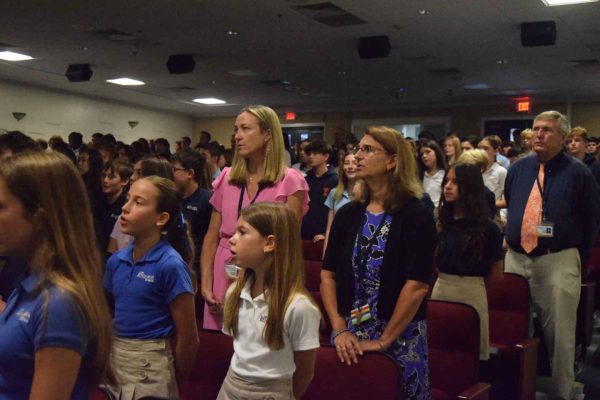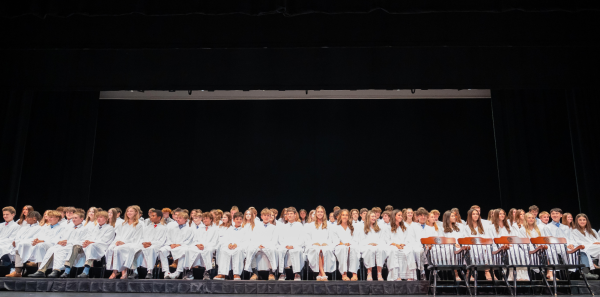Public and Permanent
Guest speaker offers compelling presentation about online safety
Mr. Guerry uses a lighter to make his point that fire cannot be both hot and cold, just like social media apps cannot be both “social” and “private.”
“Public” and “permanent.” Those were the two words Mr. Richard Guerry most often repeated during his visit to The Benjamin Middle School on October 18, 2016. Wielding his Samsung smartphone to punctuate his points throughout the entire presentation, this fast-talking, New York Jet-loving New Jersey native held his audience in rapt attention. Guerry, who founded an organization called the Institute for Responsible Online and Cell-Phone Communication (IROC2), spoke to a jam-packed Barker Performing Arts Center filled with students, faculty, and parents. He spoke about the dangers of sharing too much information or inappropriate content online via websites or social media. His cyber safety presentation was fast-paced, but very informative. Guerry’s talk mostly focused on one simple mandate: if you don’t want your cruel words or bikini-clad photo to be public and permanent, don’t share it online. Not with anyone. Ever.
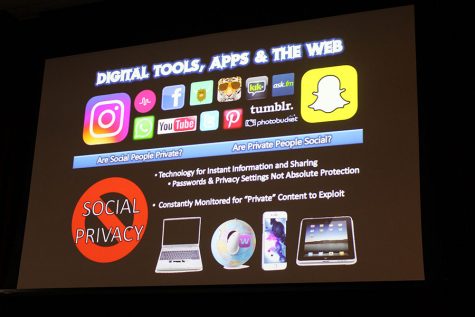
This slide in Mr. Guerry’s presentation makes it clear that if you intend to share information via the web and social media, it will become public and permanent.
As Mr. Guerry spoke, he used a lighter as a very effective visual aid. He explained that if a flame could be both hot and cold, it would be much more useful. However, reality is that fire, no matter if it’s from a lighter, a torch, or a bolt of lightning, is and always will be hot. “So,” he asked, “how can something social also be private?” He wanted to show how social media apps and sites, while they often preach privacy, are anything but private. Using recent examples from the media and personal stories, Guerry illustrated the dangers that come with giving out one’s own personal information online, noting that it’s easy for predators with nefarious plans to lurk behind screens. He also warned those in attendance about phishing scams – individuals who, through emails and ads, pose as legitimate companies and try to deceive users into giving up valuable personal information. Guerry even mentioned how apps that advertise themselves as private or claim to delete user content (Snapchat, anyone?) actually store information on their servers or even on your device.
Guerry’s talk hit home with many of the students in attendance. “My mom got her email phished,” explained seventh grader Emeline Smith. “It was an extremely stressful situation. Not only were all of her [email] folders deleted, but a handful of [her] baby photos were too.”
The middle schoolers also came away with some valuable lessons. “Every post you make will always be online,” said seventh grader Catherine Schenk. “The golden rule of technology means keeping what you want to be kept between your friends and family private,” added eighth grader Danai Makoni.
Guerry made the point that, if given the chance, people would never put on the front page of the local newspaper that they
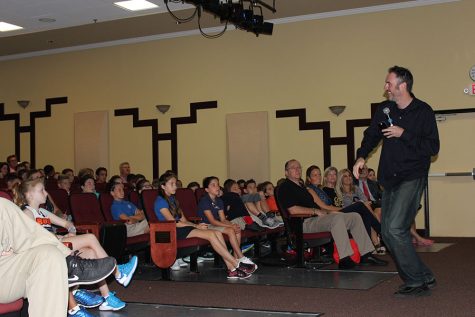
The audience in the BPAC listens intently to Mr. Guerry’s speech.
would be going out of town. However, people post such information on Facebook, Instagram, Twitter, etc. – digital platforms that may have a much broader spectrum than the local paper. He mentioned a few stories where individuals posted to social media sites that they would be out of town, only to return home to find that they had been robbed.
Guerry’s presentation was due in large part to Spanish teacher Mr. Charles Maddox, who heard of Guerry’s impactful presentation during a recent trip to Atlanta. “I brought Richard Guerry to school because I heard nothing but rave reviews about his presentation,” said Maddox. “I was visiting a school in Atlanta who hosted him, and their head of middle school said all the students loved his engaging style and informative points.”
It was a successful and eye-opening assembly – one that warned students of what not to do, and gave parents a leg up on how to help keep their children safe online.
